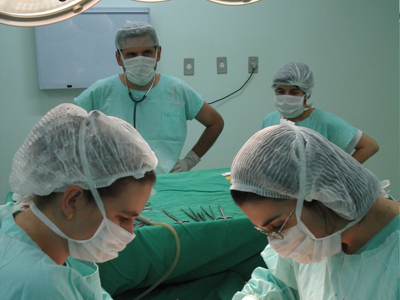
Clients who benefit the most from our wealth management services are small business owners, university professors, or other super-savers who are busy productively earning and saving and want to delegate oversight to a team of professionals. This also includes a number of doctors who have unique but common financial planning concerns. It was with interest therefore that I read fellow NAPFA member Ray Mignone‘s article, “Doctors need financial planning help, too…” in which he wrote:
Unfortunately many individuals erroneously believe that all physicians are very affluent with a financially secure retirement, this is often not the case. …
Physicians enter the workforce about a decade later than their non-medical contemporaries, leaving fewer productive years of earning income. They also usually start their careers with enormous medical school debt levels that many others don’t have.
In addition they tend to marry and have children later in life, often postponing saving for their children’s educational funding and their own retirement. Those who open their own office have significant initial outlays for equipment and furnishings. We all are aware of the high medical malpractice insurance costs that must be paid and the low fees and mountains of paperwork from the medical insurance payers that all erode a physician’s profits.
All of these issues cause most physicians to put in long hours and due to lack of time neglect their own financial and retirement planning.
Doctors are incredibly busy. Their time is precious, and they want to spend that time caring for their patients. They need to understand and trust their financial advisor, and they need to know that their financial advisor has their best interests at the heart of everything they do.
Mistrust of the financial services world is not irrational. As a result, there are two potential pitfalls that doctors can make. I’ve added numbers to two of Mignone’s warnings to physicians:
(1) Since many physicians are well educated and accustomed to doing their own research they also tend to have a hard time making good investment decisions due to a disease I call “analysis paralysis”. This occurs because they feel the need to understand “everything” about an investment before making the decision, so the decision gets put on the back burner.
(2) While having the proper insurance is important too many physicians get “sold” on complicated insurance products that mix investments with insurance. Many of these products end up benefiting the insurance salesperson more than anyone else. Be smart, shop around and understand the costs and expenses of the products being pitched. There is often a better alternative.
Warnings (1) and (2) are most in tension when doctors rightly perceive that their financial advisor is selling them product rather than serving their interests. We believe that the best way to find a financial advisor who you will trust after adequate explanation is through NAPFA, the National Association of Financial Advisors. To find a NAPA advisor in your area, go to napfa.org.
Subscribe to Marotta On Money and receive free access to the presentation: Ten Questions to Ask a Financial Advisor.
One Response
Larry Whitesides
David:1. MY company name iis very similar. 2. I went to Stanford. 3. I used to work with about 150 M.D.s.I am semi retirted today. .
I termed my work Holistic, Virue Based, Purpose Driven Planing. In working with a Doctor and family, the universal complaint of the spouse was”lack of time together”. I started a Time Budget study with them. I set up a simply way to track every moment of the Dr’s. time from when he/she got out of bed to when he went to bed. It incuded a break down of his travel time, and then the time he took for each patient and what work he did. We compared his time – per -proceedure with his fee schedual and found little correlation. Virtually all Doctors used a fee scedule received from the Medical Association and had no relationship to the time they actually took. Many went back to “school and training” to increase their speed, and it was better for the patient too. Especially important to a Dentist
That study chagnged their lilves, and got them on a new course of planning for their llives. More important than saving taxes, earning more money, reducing overhead, reducing Mal-practice insurance costs massively, etc. Those also followed, but the time budget study was the key to them learing good priorities allocation financial budgeting, sound tax and investment planning and setting new personal and family goals.
Doctors are the highest trained professional but the the most poorly educated.
They need more help than any professional .I thought you migjht find it an interesting idea.